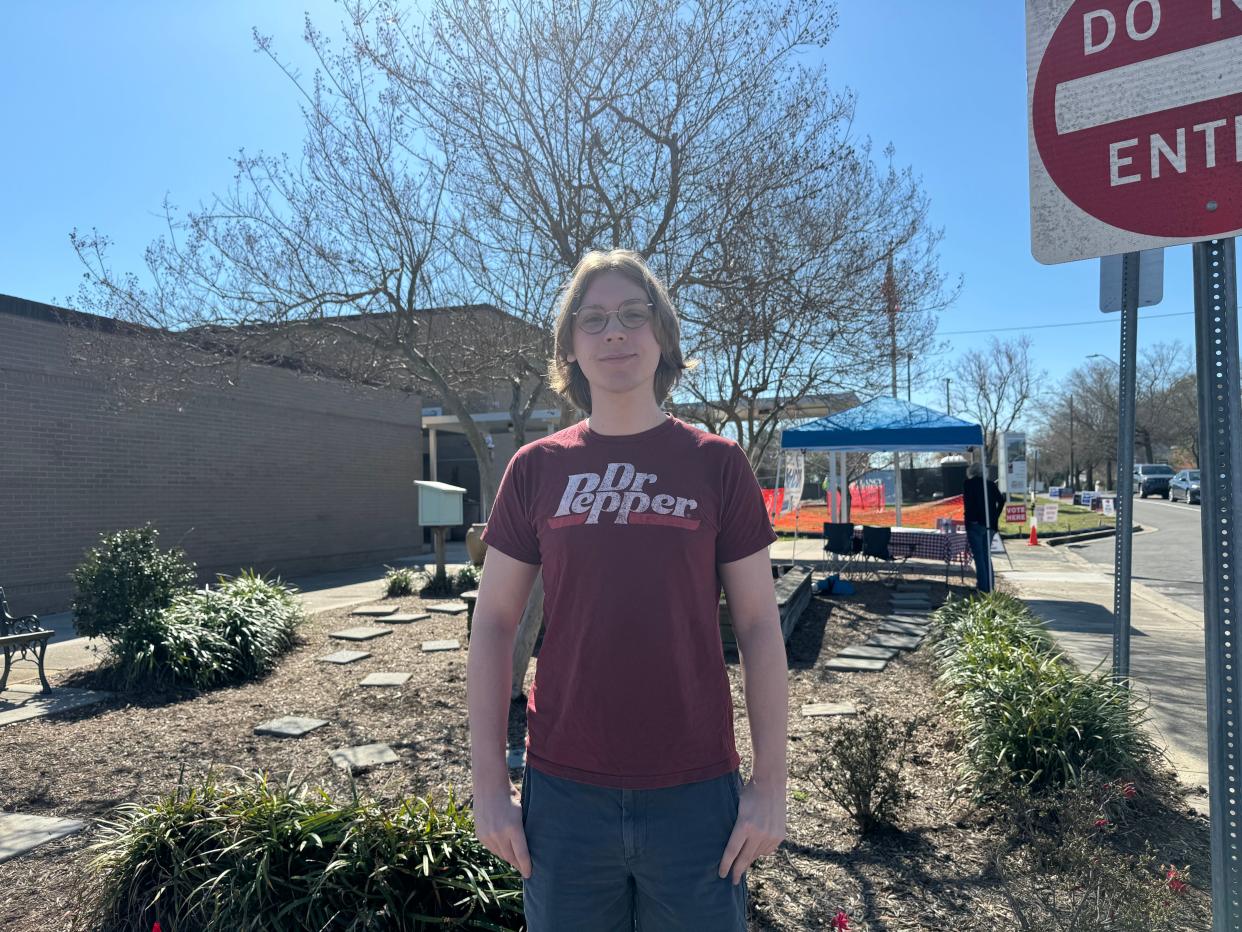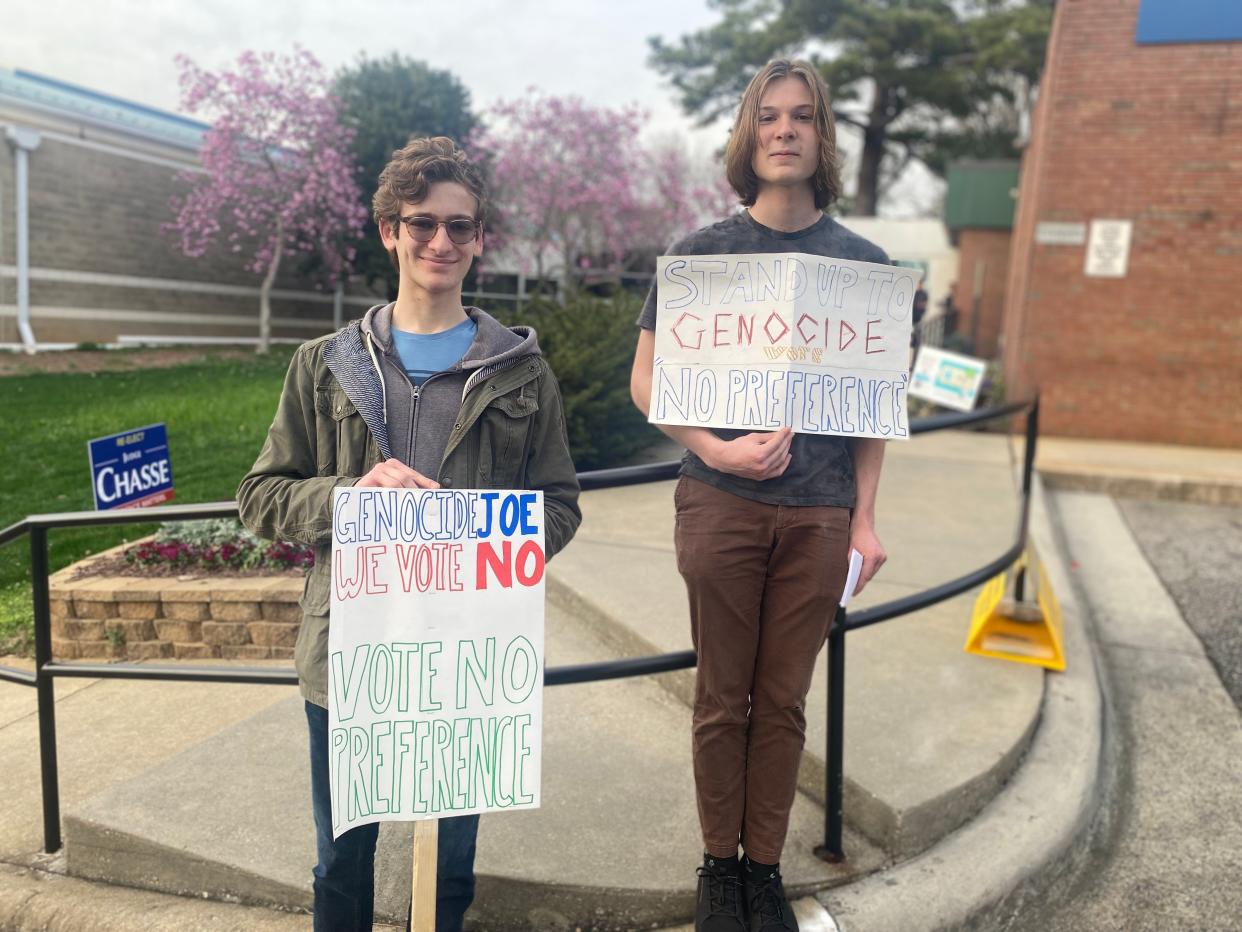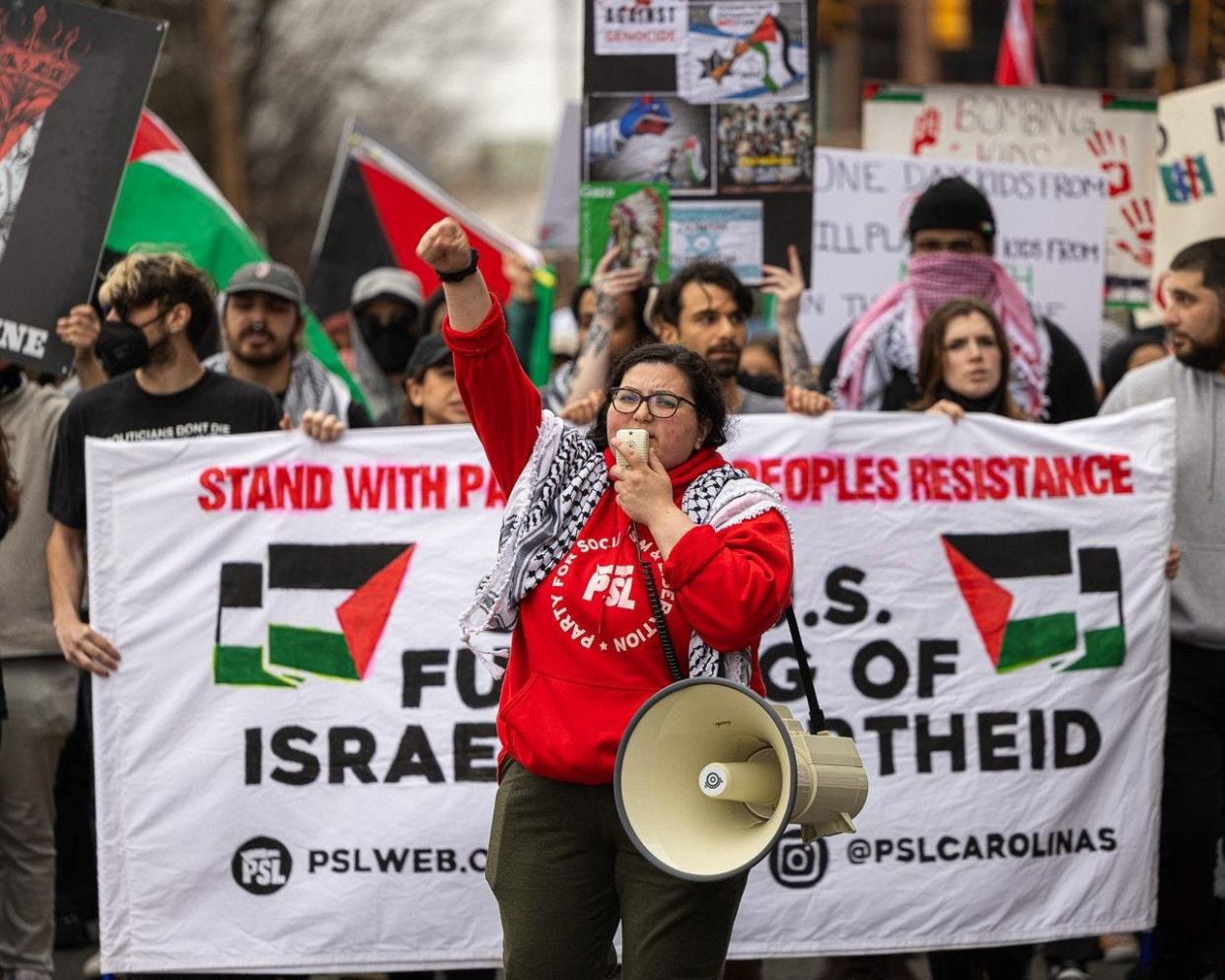Why 88,000 NC voters chose 'no preference' over President Biden in the Democratic primary
Although President Joe Biden clinched all of North Carolina’s Democratic delegates on Super Tuesday, roughly 13% voted “no preference.”
The last time thousands turned out to vote this way was in 2012 when there was also only one option on the Democratic primary ballot – Barack Obama. Obama received the majority of votes (79%), but “no preference” claimed 21%.
In the 2020 presidential election, only about 2% of North Carolinians voted “no preference” in the Democratic primary, but there were over 10 candidates to choose from.
A lack of options on the primary ballot typically happens when an incumbent is running, said David McLennan, professor of political science at Meredith College.
“If we go back and look at other presidential primary elections, it's not unusual to have a fractured ... party during a primary election,” McLennan said.
“No preference” votes made their mark in each of North Carolina’s 100 counties, but Robeson County saw the state’s biggest numbers with 37% choosing that option over Biden. Other counties posting high percentages included Tyrell, Alleghany and Martin.
McLennan noted that Robeson County tends to be unique and can swing more than other areas. He attributes this to the county’s economic and cultural characteristics. Robeson County has a large minority population, including Lumbee Nation voters. It is also one of the poorest counties, he said.
More: Trump, Biden win NC presidential primaries on Super Tuesday

A lack of choices
On Election Day, several voters expressed dissatisfaction with the lack of choices in the Democratic primary.
In Wilmington, Ethan Jones, 19, was one of those voters.
"I just don't really like the one option I've been given," Jones said, referring to Biden.
Voters can push back on the incumbent, McLennan said. Additionally, he said, many voters are dissatisfied about Biden’s age, especially young voters.
Despite the over 88,000 who voted “no preference,” Biden still clinched all 113 delegates. This is because in North Carolina, a candidate must receive at least 15% of the votes to be given a delegate. “No preference” claimed 13% of the vote, not quite hitting the threshold.
Nationally, “uncommitted” has won 20 delegates with 11 coming from Minnesota, seven from Hawaii and two from Michigan. Biden still holds the majority of Democratic delegates with 2,107.

A vote to protest the war in Gaza
For some, the decision to vote “no preference” was an act of protest to take a stand against Biden and his stance on the war in Gaza.
One of those voters was Veronica Morson, a 22-year-old from Durham County. She has been to protests and city council meetings calling for an end to Palestinian suffering, and her “no preference” vote was just one part of her advocacy.
“The genocide in Palestine is extremely important to me,” Morson said. “I wanted to make that clear by voting no preference...I feel like our government is still not taking the issue seriously and is continuing to support genocide.”
Morson, who doesn’t regularly vote in primary elections, said the movement is actually what got her to the polls on Election Day.
“My no preference vote was solely in support of Palestine,” Morson said. “It’s also honestly the only reason I voted in the primaries.”
Over 30,000 people have died in the war since Oct. 7 when Israeli forces invaded Gaza after a Hamas raid killed 1,200 people, according to USA TODAY.
Response from the White House has included a call from Vice President Kamala Harris on March 3 for a temporary six-week ceasefire to release hostages. The deal is still waiting for approval despite efforts to finalize it before the start of Ramadan on March 11. Biden has also called for an emergency port to be built in Gaza to help deliver aid to Palestinians who are experiencing intense hunger and disease.
Protestors say this isn’t enough. They want an immediate ceasefire and for Biden to stop aiding a genocide. One movement, called Abandon Biden, calls for people to withhold votes for the current president in hopes that he would lose key swing states like Minnesota, Michigan, Wisconsin, Pennsylvania, Florida, Georgia, Arizona, Nevada and North Carolina and effectively lose the 2024 presidential election.
'A broken vehicle for change’

One group at the forefront of the North Carolina movement to protest Biden is the Party for Socialism and Liberation.
Palestinian Muslim Dana Alhasan, 34, is a member of the party and has participated in several protests.
Alhasan, although involved in the movement, did not vote in the Democratic primary. Instead, she voted for Claudia De la Cruz and her Vice President running mate Karina Garcia and she encourages people to vote independent.
“The Democratic party is a broken vehicle for change,” Alhasan said. “We should build an independent political party that doesn't support the war machine.”
Coming to this stance was not just about the war in Gaza, she said. Her concerns run deeper than that.
“We have consistently asked and demanded the Democratic party not to invade Iraq, to not go into Afghanistan, to stop bombing Yemen, to stop the genocide in Palestine and consistently they ignore us and deny us,” Alhasan said.
Alhasan also noted that the movement has increased outspoken public support for Palestine.
“So, seven years ago, I had a lot of people who would, you know, whisper in my ear that they support me but were too afraid to stand up for me,” Alhasan said.
She feels like the public has become more vocal, saying the difference is so stark she would call it a “a sea of change."
Looking toward November
In anticipation of the general election, “no preference” voter Morson said she feels conflicted about her plans.
“I feel like voting for Biden and voting for Trump would make me complicit in genocide,” Morson said. “At the same time, I hate when people say they’re not gonna vote.”
Despite the protest efforts in the primary, McLennan said he still expects Biden to get 90-plus percent of Democrats voting for him in November. He cites polarization as the cause – when it comes down to it, Democrats would rather vote Biden than Trump.
McLennan said he wonders how long the movement will last.
“The real question is will that issue be as strong in November as it is in March?”
This article originally appeared on Wilmington StarNews: Thousands of voters chose 'no preference' over Biden in NC primary
